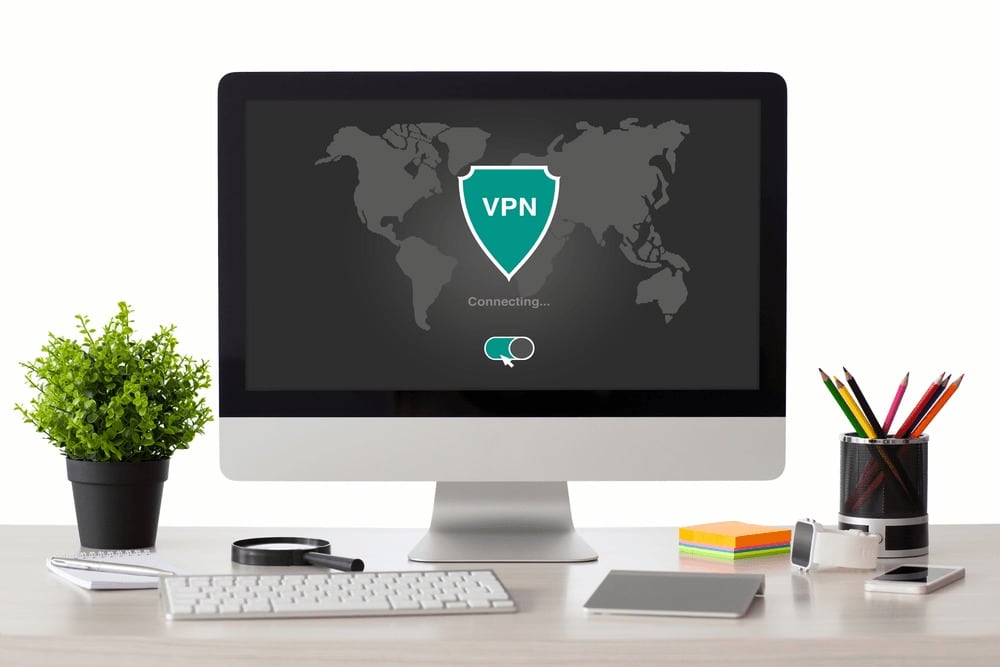Hey there! As an experienced cybersecurity professional and fellow streaming enthusiast, I know how important privacy is. We deserve to control our own data and browse the web freely without being tracked. That‘s why techniques like IP scramblers and VPNs have become go-to tools for masking your real IP address and protecting your identity online.
In this comprehensive guide, I‘ll explore:
- How IP addresses work and why they pose privacy risks
- Different tools to hide your IP address (scramblers, VPNs, Tor)
- Head-to-head comparisons of their pros and cons
- Recommendations for choosing the best IP masking solution for your needs
- Tips for using IP scramblers safely and avoiding surveillance
Let‘s dive in!
What Exactly is an IP Address?
An IP address is like your computer‘s home address on the internet. It‘s a unique series of numbers assigned to each device connected to the internet. Here‘s a common example:
192.168.1.38This allows your computer to communicate with networks and servers worldwide. But it also gives away your identity and location.
Here‘s how it works:
Your Internet Service Provider (ISP) assigns you an IP address when you connect to the internet. This links activity back to your ISP account.
Websites and services log your IP address when you access them. This allows building long-term profiles of your browsing habits.
Agencies and bad actors can track your IP address to monitor your online activity or even approximate your location within about 25 miles.
Regular IP addresses pose major privacy risks:
Your browsing history can be linked together – Marketers build extensive profiles about you over time by tying all website visits back to your IP. Your interests, habits, and identity can be uncovered.
Your location is exposed – Geolocation tracking pinpoints your approximate location from your IP, without your consent. This allows delivering localized ads but also unwelcome tracking.
You can be personally identified – Authorities can contact your ISP to link your real identity to an IP address used for malicious activity. Or subpoena records in legal cases.
Traffic can be intercepted – Hackers can spy on unencrypted traffic to and from your IP address. That‘s why VPN encryption is so important.
No wonder tools like IP scramblers and VPNs have surged in popularity!
IP Scramblers: Masking Your Address
IP scramblers allow you to hide your real public IP address by routing your traffic through multiple proxy servers. Each proxy assigns you a temporary IP address, preventing websites from linking your browsing history together.
Here‘s how IP scramblers work:
You connect to the IP scrambler service‘s network of public proxy servers located around the world.
The service assigns you a random IP address from their proxy server bank to use as your temporary masked IP address.
You visit a website, and the request is routed through the proxy server to the destination website. The website sees the proxy‘s IP instead of your true IP.
After your request is completed, the IP scrambler service automatically rotates you to use a new proxy and IP address for your next request.
This cycle continues, constantly shifting your IP address with each new website or service you use. Top IP scramblers like Blazing SEO Proxy rotate your IP on every request for maximum anonymity.
The more proxy servers an IP scrambler service has access to globally, the more difficult it becomes to trace traffic back to its origin point.
Here are some top-rated IP scrambler services to check out:
- Blazing SEO – Reliable proxy rotating on every request. Over 1 million IP addresses. Plans from $7/month.
- SSLPrivateProxy – Quick proxy rotation and over 300,000 IP‘s. Plans from $200/month.
- Soax – Affordable basic plan at $4.99/month with unlimited bandwidth.
- GeoSurf – Browser extensions for easy IP scrambling. Rotates every 45 mins.
VPNs: Encrypted Tunneling
Many people compare IP scramblers to VPN services, which also hide your true IP address. However, VPNs work differently under the hood:
A VPN, or Virtual Private Network, encrypts all the internet traffic leaving your device and funnels it through a virtual tunnel to the VPN server endpoint.
This means:
All apps and website requests on your computer, phone, or tablet are routed through the encrypted VPN tunnel.
Your device‘s IP address is replaced with the VPN server‘s IP address. Websites see the VPN IP rather than your real IP.
Your traffic is encrypted on your device before being sent to the VPN server, protecting your data from snooping.
This makes VPNs super simple to use. You can turn it on once and tunnel all your traffic through the VPN without configuring individual apps. However, the tradeoff is VPN encryption can reduce your internet speeds.
Top-rated VPN services include:
- NordVPN – Extremely fast speeds with over 5200 servers worldwide. Simple apps.
- Surfshark – Unlimited device connections. Lower priced plans available.
- ExpressVPN – Fast and reliable with lots of server locations. Top-rated but pricier.
IP Scrambler vs. VPN: Key Differences
| IP Scrambler | VPN | |
|---|---|---|
| How It Works | Proxy rotates on each request | Encrypts and tunnels all device traffic |
| Speed | Generally faster | Can be slower due to encryption |
| Privacy Protection | Maximum anonymity via proxy rotation | Encrypts all traffic end-to-end |
| Ease of Use | Requires apps for each use case | Simple on/off system-wide |
| Pricing | Proxy plans start ~$7/mo | VPN plans start ~$3/mo |
VPNs are suitable for conveniently encrypting and protecting all of your device‘s internet traffic. IP scramblers give you more granular control to anonymize your IP address on a per-app basis, maximizing privacy.
Power users often layer VPN and IP scrambler services together for maximum protection!
Tor Anonymity Network
In addition to VPNs and IP scramblers, Tor is another option for masking your real IP address:
The Tor network works by routing your traffic randomly through a worldwide volunteer network of servers called nodes:
You install the Tor browser or plugin which connects to the Tor network.
Tor encrypts your web request and bounces it randomly through relays and nodes around the world.
The exit node makes the request on your behalf and routes it to the final destination.
Responses travel back through the nodes to reach your actual IP address.
This multi-hop pathway through randomized Tor nodes makes tracing traffic back to the source extremely difficult. However, the downside is Tor will be noticeably slower than a typical VPN or IP scrambler due to the complex routing.
Tor also requires more technical know-how to set up compared to the turnkey simplicity of most VPN services today. But it offers some of the strongest anonymity online, making it suitable for activists, journalists, and whistleblowers.
Choosing the Right Privacy Solution
Here are my top tips for choosing the best tool for your privacy needs:
Try a VPN first for easily securing daily traffic and data on public WiFi. Top services like NordVPN offer free trial periods.
Use an IP scrambler for specific apps and sites where you want maximum anonymization. Blazing SEO Proxy is a top choice.
Leverage Tor for anonymizing extremely sensitive online activities. But prepare for slower speeds.
Layer your defenses by chaining VPN + IP scrambler services together.
Always use strong randomized passwords, never reuse passwords across accounts, and enable two-factor authentication when possible.
Limit use of platforms that rely on your personal data for targeting. Disable location services.
Review site terms and opt out of data sharing offers from tech and telco companies.
Keep operating systems, browsers and security tools up-to-date with the latest patches.
Your privacy matters. Take proactive steps to scramble your IP address, lock down accounts, and anonymous browsing habits. The risks are real – but thankfully so are the solutions.
Stay safe online! Let me know if you have any other questions.






